Partners
AGENCIA ESTATAL CONSEJO SUPERIOR DE INVESTIGACIONES CIENTIFICAS
The Spanish National Research Council (CSIC) is the largest public institution dedicated to research in Spain and the seventh largest in the world with the mission to foster, coordinate, develop and promote scientific and technological research, of a multidisciplinary nature.
Two institutes from CSIC are involved in TUdi:
The Institute for Sustainable Agriculture (IAS) was established in 1992. IAS has the specific objective of studying the sustainability of agricultural Mediterranean systems, such as dryland and irrigated herbaceous crops and olive orchards, in order to harmonize food production with conservation of natural resources and environmental protection.
The objective of the Institute of Agricultural Sciences (ICA) is to provide the CSIC and the Spanish society with a center of excellence in agricultural and environmental research to address the challenges that modern and specialized European agriculture poses on the environment and the sustainability of natural resources. Its research lines focus on the growing demand of safe and high-quality agricultural products, improved municipal and agricultural waste management, and more sustainable and environmentally friendly agricultural practices.
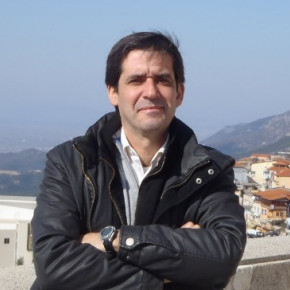
Jose A. Gomez
Dr. Jose A. Gomez is an agricultural engineer with a PhD in Surface Hydrology from the University of Cordoba. He works as a Research scientist at the Institute of Sustainable Agriculture of the Spanish Council for Scientific Research (IAS-CSIC) in Córdoba since 2002.
His research focuses оn soil and water conservation agricultural areas, particularly on tree crops. His research efforts combine basic and applied research with participatory projects with farmers and other stakeholders.
Dr. Gomez is also the president of the Board of Trustees of the Natural Reserves of the Humid Zones of the South of Córdoba. Between 2012 and 2016 he was the director of IAS-CSIC. He is also a manager ("gestor") of the soil area in agriculture and forestry for the Spanish State Research Agency.
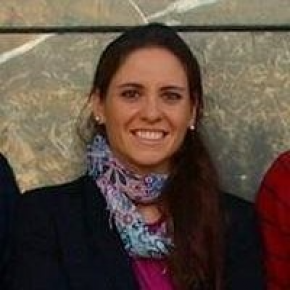
Gema Guzmán
Dr. Gema Guzmán has a PhD in Agricultural Engineering and is an expert in soil and sediment tracing techniques aiming to understand environmental processes. Her research also focuses on sustainable agricultural management practices to preserve soil health.
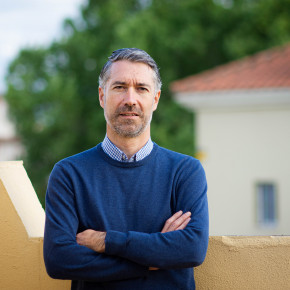
David Diez
David Diez is a Project Manager with a Master's degree in Business Administration (MBA). He has an extensive background in accounting and finance with experience in Europe and the U.S. leading international projects.

César Plaza
Dr. Plaza is a a soil chemist and holds a PhD in Environmental and Agricultural Chemistry. He is a scientific researcher and leads the “Sustainable Agriculture and Biogeochemistry” group at the Institute of Agricultural Sciences (CSIC). He is the liaison between TUdi and the field experiments in Central Spain.
Dr. Plaza has 100 peer-reviewed articles and is also the co-inventor of a patented technology for recovering a struvite-rich fertilizer from wastewater, which was licensed to a water management company.
His research interests include properties, functions, and dynamics of soil organic matter as well as the treatment of organic wastes for use in agriculture as soil amendments.
CENTRE FOR AGRICULTURAL RESEARCH
The Centre for Agricultural Research (ATK), the largest agricultural research complex in Hungary, carries out basic and applied research and development in the field of agricultural sciences, participates in the dissemination of professional and scientific knowledge, and works in cooperation with organisations involved in agriculture, the food industry, rural development, environment protection and sustainable development, at both national and international levels.
Soils represent a considerable part of the natural resources of Hungary. Consequently, their rational utilization, conservation and the maintenance of their multipurpose functionality have particular significance for both the national economy and environment protection. ATK focuses among others also on research on the consequences of climate change for processes involved in the soil, water, material and energy cycles and the quality of surface waters, on relationship between crop yield, soil hydraulic properties and environmental factors.
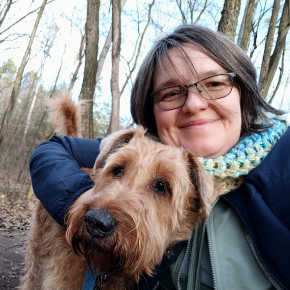
Zsófia Bakacsi
Dr. Zsófia Bakacsi is a geologist and holds a PhD in Earth Sciences (Hydrogeology) with her research focusing on soil-forming processes. She has more than 20 years of experience in applied soil research in the areas of mapping, database construction, spatial modelling, interactions of environment and soil water management.
She has authored and co-authored more than 80 peer-reviewed papers and book chapters, and among others contributed to an extended 3D soil textural database development for modelling purposes and to FAO-harmonised parent material classification, and irrigation potential as well as salinisation risk maps elaboration for Hungary.
Dr. Bakacsi is a co-leader of the WP1 responsible for the development of the TUdi experimental site data frame, Head of the Department of Soil Physics and Water Management at the Institute for Soil Sciences, Centre for Agricultural Research (Hungary), and Secretary of the Hungarian Soil Science Society.

Anita Szabó
Dr. Anita Szabó is a research fellow at the Institute of Soil Sciences, CAR, ELKH. During her PhD she examined the yield increasing effects of compost treatments in orchards. As a post-doctoral researcher she has investigated the effects of different NPK fertilisation levels on grass hay yield and NPK content, as well as on cellulose decomposition.
She is currently working on two areas of research, examining: i) the phytotoxic effects of heavy metals on the soil-plant system ii) the impact of pig manure and slurry applications on the nitrate-N content of the soil profile and underground water. During her career she has published 82 scientific papers.
AGRISAT
AgriSat is an SME based in Albacete (Spain), which operates globally. It was founded in May 2014 as a spin-off of a series of EU and national projects. These projects have all been dedicated to the development and demonstration of the operational use of Earth observation (EO) and webGIS for water management and farm advisory. AgriSat’s founding partners are an interdisciplinary group of scientists of the University of Castilla-La Mancha, ICT developers, agronomists, farm consultants, and farmers. As such, it draws on 20 years of experience in leading-edge technology, rigorously tested and applied as decision support tools in operational irrigation and farm management in a wide range of environments.
Some of its founding partners have been among the world-wide pioneers of the technology as well as of its integration in a holistic perspective and innovative participatory development and validation approaches. The mission of AgriSat is to make this knowledge and the corresponding easy-to-use tools widely available to the water and agriculture sectors and thus, to help farmers save water, energy, and inputs while maintaining or increasing yields and ultimately increase farm profitability in an overall context of sustainable agriculture.
BEIJING FORESTRY UNIVERSITY
The history of BFU can be dated back to 1902. Originally known as the Forestry Section of the Agriculture Department of the Imperial University of Peking (Jingshi Daxuetang, predecessor of Peking University). After decades of development, BFU has developed itself from a specialized college in forestry to its current status as a multidisciplinary university with leading positions among its counterparts in such disciplines as forestry, soil and water conservation, desertification control and prevention, landscape architecture.
With forestry in the leading position among its national counterparts, competitive advantages have taken shape that highlight the university’s specialties in forest resources conservation, landscape architecture and human habitation environment, bio-materials and energies, ecology and environment, forest biology, as well as in humanities and social sciences.
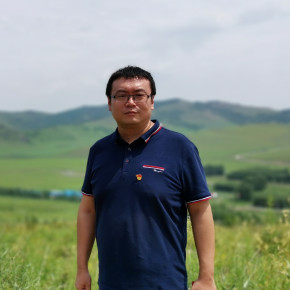
Wang Ruoshui
Dr. Wang Ruoshui is currently an associate professor and master tutor of Beijing Forestry University. He has a PhD in physical geography and his research areas focus on saline-alkali land improvement, water and fertilizer regulation in agroforestry.
Dr. Wang has hosted four projects such as the National Natural Science Foundation of China, participated in five projects such as the 'Twelfth Five-Year' National Science and Technology Support Plan, published 30 papers at home and abroad by the first and communication authors, edited two textbooks, published three teaching reform papers, and hosted one teaching reform project.
Since entering Beijing Forestry University in 2012, he has served as Deputy Director of the National Field Scientific Observation and Research Station for Forest Ecosystems in Ji County, Shanxi Province, as well as Head of the Meteorological Observation Group, and participated in the preparation of the data set of the station for 2005-2015.
In addition to participating in TUdi's work on data collection and collation in agriculture in China, he is also an associate professor and master's tutor of Beijing Forestry University, explaining the course of 'compound agriculture and forestry' for undergraduates.
BEIJING NORMAL UNIVERSITY
Faculty of Geographical Science (FGS) in Beijing Normal University has a history of nearly 110 years. It dedicated to being at the forefront of teaching and learning and fostering cutting edge research and discovery as well as contributing to societal services in Geography. FGS enjoys a good reputation at home and abroad, and was ranked No.1 in the third-round national disciplinary assessment, and A+ in the fourth-round national disciplinary assessment.
FGS comprises 6 secondary institutions, including School of Geography, School of Natural Resources, Institute of Remote Sensing Science and Engineering, Institute of Land Surface Systems and Sustainable Development, Centre for Geo-Data and Analysis, as well as Academy of Disaster Reduction and Emergency Management. More than 200 faculty members and staff work in FGS at present, 95% of whom are qualified at doctoral levels. Many are also affiliated in the State Key Laboratory of Earth Surface Processes and Resource Ecology.
University of Natural Resources and Life Sciences
The University of Natural Resources and Life Sciences (BOKU), the Alma Mater Viridis, was founded in 1872 and perceives itself as a teaching and research center for renewable resources, which are necessary for human life. It is BOKU's objective to help make a considerable contribution to the conservation and protection of resources for future generations by providing diversity in its fields of study. Connecting natural sciences, engineering and economic sciences, we wish to increase knowledge of the ecologically and economically sustainable use of natural resources, to provide a harmoniously cultivated landscape.
An important feature of BOKU's research lies in its recognition of future problems and our efforts to provide and stimulate practical relevance, internationality and among disciplines. Interdisciplinary cooperation of scientists on an international level should help create comprehensive questions about the future of our planet and lead to innovative Within the Department for Water, Atmosphere and Environment (WAU) the Institute for Soil Physics and Rural Water Management (SoPhy) has a main expertise in soil erosion, soil protection and water management. SoPhy further uses and develops experimental and mathematical modelling approaches to advance the understanding of water fluxes and transport processes in the vadose zone. BOKUWAU- SoPhy has extensive experience in national and international research cooperation.
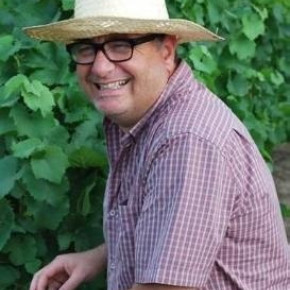
Peter Strauss
Dr. Strauss holds a PhD in Soil Science. His academic interests focus on on soil erosion, soil hydrology and watershed management. He has authored and co-authored more than 100 peer reviewed papers, some book chapters and technical papers for the general public.
In TUdi, he is responsible for coordinating WP5 on Dissemination. He is the director of the Austrian Federal Agency for Water Management and heads the Institute for Land and Water Management Research there. Dr. Strauss also teaches at BOKU University and at the Technical University Vienna.
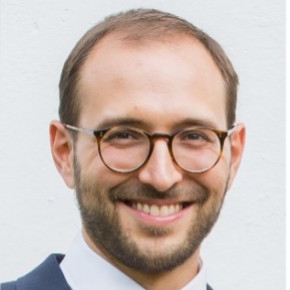
Gunther Liebhard
Gunther Liebhard is an environmental engineer with a focus on water resource management. Currently, he is a researcher at the Institute of Soil Physics and Water Resource Management (BOKU) and the Austrian Federal Agency for Water Management (BAW).
In the TUdi project, he is contributing to dissemination activities to ensure that the development of soil restoring strategies is performed jointly by TUdi partners from science and practice.
CHINA AGRICULTURAL UNIVERSITY
China Agricultural University (CAU) is one of the top ranked key national universities in China, specializing in agriculture, biology, engineering, veterinary medicine, economics, management, humanities and social science. It was established in 1995 by merging the Beijing Agricultural University and the Beijing Agricultural Engineering University. CAU is directly subordinated to the Ministry of Education of P.R.China and has been designated as part of the Project 985, to create world class universities in China, and the Project 211, to raise the research standards of universities.
Currently, it embraces three key national laboratories, four national research centers, 18 key ministerial laboratories, six ministerial research centers, plus a number of research centers and experimental stations. These open platforms provide CAU faculties with an excellent academic supports and expertise for performing cutting edges researches on life and environmental sciences. At present, the university has 17 colleges and 60 departments, and about 1600 professors with the majority teaching and researches oriented and tailored to meet the national needs for economic and social development.
CZECH TECHNICAL UNIVERSITY IN PRAGUE
CVUT is the Czech oldest technical university (established in 1707), second largest university in the Czech Republic and it belongs to one of the top research institutions in the country. It consists of eight faculties and educates in total ca. 24000 students. Faculty of Civil Engineering, having more than 6000 students, belongs to largest faculties. As a big academic body, CVUT has broad economic and administrative support, attends in number of national and international research projects and has also very close relations with commercial sector.
The Department of Landscape Water Conservation currently employs 20 staff and 20 Ph.D. students. The research is oriented mainly to surface and subsurface water management, landscape and land-use stability. The particular fields of interest are soil science, groundwater hydraulics, drainage systems and structures, special engineering drainage measures, irrigation systems and structures, watershed protection and management, construction of ponds and special reservoirs, water management, and complex environmental problems related to landscape design and conservation, including the process of environmental impact assessment. GIS tools and advanced numerical models are extensively used for most of listed activities.
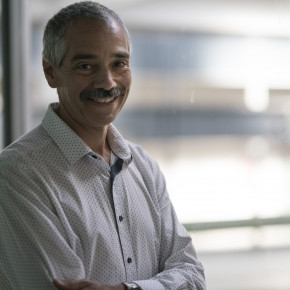
Tomas Dostal
Dr. Tomas Dostal holds a PhD in Civil Engineering and in Water Management at the Civil Engineering Faculty of CTU Prague. He is an expert on landscape engineering, landscape hydrology, and GIS based modelling.
Dr. Dostal has authored and co-authored more than 70 peer reviewed papers, book chapters, monographs, conference papers, popularisation articles and certificated technical methodologies.
In TUdi, he is responsible for the coordination of WP 2.1. Apart from that Dr. Dostal works as head of department of Landscape Water Conservation at the Civil Engineering Faculty and is responsible for the doctoral study program of Environmental Engineering at CTU Prague.
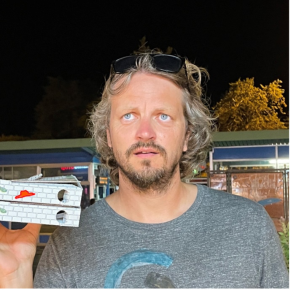
David Zumr
David Zumr is a hydrologist and soil physicist, he is an Assistant Professor at the Department of Landscape Water Conservation, Faculty of Civil Engineering, CTU in Prague.
Dr. Zumr holds PhD in Water Management and Water Structures. He focuses on catchment hydrology, soil water regime and numerical modelling of hydrological processesg.
In TUdi, within WP 2.1, he studies how are the soil properties and soil health status related to different agricultural practices.

Miroslav Bauer
Dr. Miroslav Bauer has a PhD in Environmental Engineering, focused on Water and Landscape Management at the Civil Engineering Faculty
of CTU Prague.
His expertise is in using of GIS (Geographical information systems) for rainfall-runoff, erosion and transport processes; silting of reservoirs, model WaTEM/SEDEM in research as well as pedagogical activities.
Dr. Bauer has authored and co-authored more than 60 peer reviewed papers, book chapters, monographs, conference papers, popularisation articles and certificated technical methodologies.
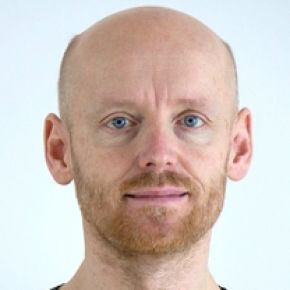
Josef Krasa
Dr. Josef Krasa holds a PhD in Water Management at the Civil Engineering Faculty of CTU Prague. He is an expert on large scale soil erosion modelling, remote sensing and GIS based analyses.
In TUdi, he communicates with Czech farmer groups, and he is responsible for development of decision support tools for soil erosion monitoring and control. He supervises Tudi PhD students Michal Vrana and Raquel Falcao at doctoral study program of Environmental Engineering at CTU Prague.
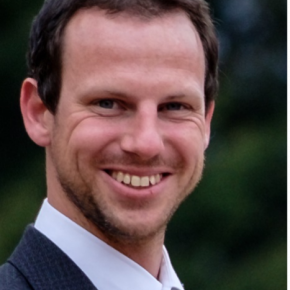
Tomas Laburda
Dr. Tomas Laburda has a PhD in Environmental Engineering at the Department of Landscape Water Conservation at the Faculty of Civil Engineering at the CTU in Prague.
He specializes in remote sensing and the use of unmanned aerial vehicles (UAVs) in monitoring soil erosion on agricultural land. He uses photogrammetric methods to create digital terrain models and background orthophotos of areas of interest.
In TUdi, in addition to monitoring experimental watersheds using UAVs, he is mainly responsible for maintaining the network of measuring devices.
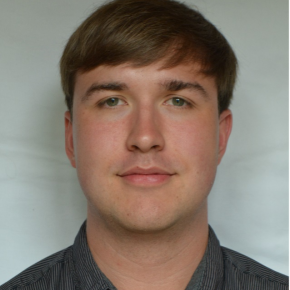
Michal Vrána
Michal Vrana is a PhD student in Environmental Engineering program. He currently works as a Research Associate at the Czech Technical University in Prague at the Department of Lanscape Water Conservation.
In TUdi project, he collaborates on the development of decision support tools for soil erosion monitoring. In addition, he specialises in field surveys and laboratory analysis of soil properties.
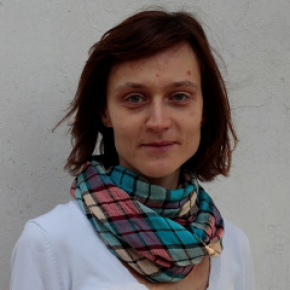
Barbora Jáchymová
Dr. Barbora Jáchymová has a PhD in Environmental Engineering at the Department of Landscape Water Conservation at the Civil Engineering Faculty of CTU Prague.
Her expertise is in combining in-situ measuring and modelling of nutrient transport within rainfall-runoff events, using of GIS (Geographical information systems) and model WaTEM/SEDEM.
Also, within the TUdi project, she participates in cooperation in the field of nutrient transport and subsequent analyses.

Raquel Falcão
Raquel Falcão is an Environmental Engineer, graduated from the University of São Paulo, Brazil.
Before joining the Environmental Engineering program at the Department of Landscape Water Conservation at the Civil Engineering Faculty of CTU Prague as a PhD student in 2021, she worked for a few years for the private sector in Brazil, on environmental licensing for major railway projects.
In the Tudi project, she collaborates on the development of decision support tools for soil erosion.
LINCOLN UNIVERSITY
Established in 1878 as the Southern Hemisphere’s first dedicated agricultural college, Lincoln University exists to enhance lives and grow the future. Its purpose is to facilitate excellent research and education to grow the knowledge of our students and help shape a world that benefits from a greater understanding of the relationship between land, food and ecosystems.
The university provides an environment that enables students and researchers to grow into their potential, to become thought leaders who will grow the future and enhance and enrich the lives of others for generations to come. Lincoln has an environment that nurtures and facilitates growth in all areas of development: physical, emotional, intellectual, financial and societal. Lincoln University facilitates great learning and growth through applied research, cultivation of deep industry relationships, world-class modern learning environments and teaching, global connections and collaborations, and by ensuring that what we teach is relevant today and tomorrow.
NEW BULGARIAN UNIVERSITY
New Bulgarian University was established on 18 September 1991 with a resolution by Bulgarian Parliament. The National Evaluation and Accreditation Agency, which reviews Bulgaria’s higher education teaching, granted NBU maximum accreditation in three consecutive accreditations in 2001, 2006, 2012 and 2019. Since 2004, NBU is an accredited partner of the Open University UK.
The research activity at the New Bulgarian University is organized by the teaching communities of the departments and centers. Among the main priorities of NBU's research policy are the transformation of the university into an international research center and its integration into many international university networks, the development of project activities, the development of interdisciplinary research and the integration of research and teaching.
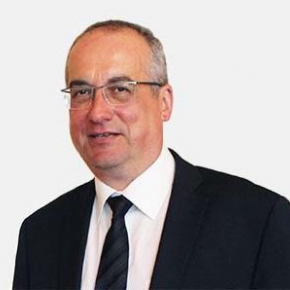
Dimitre Nikolov
Professor Dr. Dimitre Nikolov is agri-economist. He has a Ph.D. from the Agricultural Academy, Bulgaria, and is an expert in agricultural policy evaluation.
His research also focuses on the economics of agri-environmental schemes, and risk and farm management.
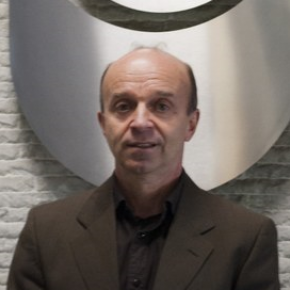
Ivan Boevsky
Professor Dr. Boevsky has a PhD in Business administration and is an expert in stakeholder management.
His research also focused on business strategies, environmental management, marketing management, customer relationship management, collective action, and project management and financing.
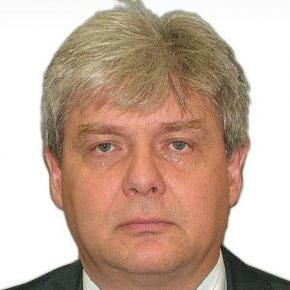
Martin Banov
Professor Dr. Banov has a Ph.D. from the Institute of soil science, agrotechnologies, and plant protection "Nikola Poushkarov".
Dr. Banov is an expert on the genesis, classification, and reclamation of natural, disturbed, and polluted soils. His research also focuses on ecology, biofuels, agro-ecological agriculture, land management, and geodesy.
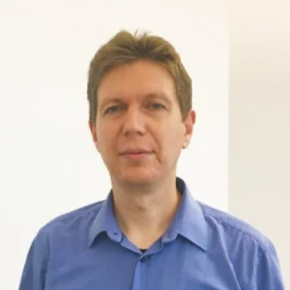
Krasimir Kostenarov
Chief Assistant Professor Dr. Kostenarov has a PhD in Finance and is an expert in farm management and modelling. His research also focuses on agri-environmental management.
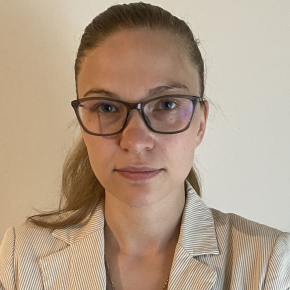
Ekatherina Tzvetanova
Chief Assistant Professor Dr. Tzvetanova has a PhD in Business Administration and is an expert in modelling economic processes. Her research also focuses on enterprise risk management.
NORTHWEST A&F UNIVERSITY
Northwest A&F University (NWAFU) is a key national comprehensive university directly under the administration of the Ministry of Education. As one of the leading universities in China, NWAFU is supported by Ministry of Education's "Project 985" and “Project 211”. The University originated from National Northwest Junior College of Agriculture and Forestry which was founded in 1934. During the past eight decades, more than 130,000 professional talents have stepped out of campus to work home and abroad, among whom 15 have become academicians of Chinese Academy of Sciences and Chinese.
Here are two institute/colleges, ISWC and CEM, in NWAFU involved in TUdi:
The Institute of soil and water conservation (ISWC), Chinese Academy of Sciences (CAS) & Ministry of Water Resources (MWR), was founded in 1956 and was the first scientific research institution established in the Northwest of China by CAS.
The State Key Laboratory of Soil Erosion and Dryland Farming on the Loess Plateau of ISWC are involved in TUdi. The laboratory focuses on solving key scientific and technological problems in soil erosion and dryland farming on the Loess Plateau and other similar areas in China.
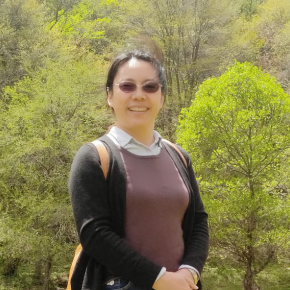
Xiaoping Zhang
Dr. Xiaoping Zhang holds a PhD in Soil Science. Her research interests are mainly focused on soil erosion and soil and water conservation, eco-hydrological processes, vegetation restoration and soil properties, vegetation remote sensing, water and sediment balance and change attribution.
In TUdi, Dr. Xiaoping is the coordinator of the Chinese side in the TUdi project. She has authored about 30 English journal papers, and co-authored 5 Chinese books chapters. She has also recently joined the team teaching Watershed Hydrology in NWAFU.
NORTHWEST UNIVERSITY
Northwest University (NWU) is a key national comprehensive university directly under Shaanxi Province. As one of the leading universities in China, NWU is supported by Ministry of Education's “Project 211”. The University can trace its origins back to Shaanxi Imperial College and Peking Imperial College founded in 1902.
NWU has 23 schools and departments, plus a graduate school. In addition to 86 undergraduate programs, NWU has been authorized to confer master' s degrees in 36 firsttier disciplines and 14 professional programs, as well as doctoral degrees in 24 first-tier disciplines. NWU houses 1 national key laboratory, 1 national research center for engineering & technology, 3 national base for international scientific & technological cooperation, 2 bases of Overseas Expertise Introduction Project for Discipline Innovation (111 Project), 1 jointly established training base of national key laboratory by Ministry of Education and Shaanxi Province, 7 national experimental teaching demonstration centers.
PENSOFT PUBLISHERS
Over the past two decades, Pensoft Publishers has been at the forefront of planning, managing, and executing dissemination and communication activities for a wide range of global, EU and national theoretical and applied research projects. With extensive experience gained through participation in more than 60 initiatives funded under FP6, FP7, Horizon 2020, and Horizon Europe - as well as by other European and national funding institutions, such as the German Federal Ministry of Education and Research, Biodiversa, Biodiversa+, and COST Actions - Pensoft has built a strong track record in science communication. Today, the Project department contributes to more than 35 Horizon Europe projects, taking the key role of dissemination, communication and exploitation work package leader. In addition to its strong expertise in science communication, Pensoft is an established open-access scientific publisher, renowned for its innovative journals and advanced publishing technologies that support the dissemination and semantic enrichment of research data and results.

Anna Sapundzhieva
Anna is a senior science communication professional with long-standing expertise in the dissemination and communication of multiple EU-funded research projects. She is specialised in implementing the full cycle of communication and dissemination activities, including the coordination and execution of social media campaigns, public and media relations.
Anna is also an expert in the conceptualisation and implementation of sustainable plans for the exploitation and dissemination of scientific results and communication strategies.
UNIVERSITY OF LANCASTER
Established in 1964, The University of Lancaster is now ranked in the top ten UK researchintensive universities. It has 12000 students (∼30% postgraduate) and 2500 staff, and is the first UK University to open a campus in Africa (in Ghana). Benefiting from > £35m+ of new investment, the Lancaster Environment Centre (LEC) forms one of the largest groups of environmental researchers in Europe, allowing integrative studies of terrestrial, aquatic and atmospheric systems from molecular to global scales.
This ‘environmental campus’ provides extensive, state-of-the-art research laboratories (including excellent facilities for chemical, biochemical and biological analysis), 15 glasshouses and 10 walk-in controlled environment rooms. TUDI will also benefit from LEC’s field sites that include a range of arable and grassland sites covering the main agricultural activities in North West of England. This includes access to long-term grassland/arable management experiments (rotations, maize, barley, Lolium sp., covercrops) at the Myerscough Agricultural College and crop diversity manipulation experiments located at Colt Park in the Yorkshire Dales National Park (Cole et al. 2019) that have been researched for over 25 years.
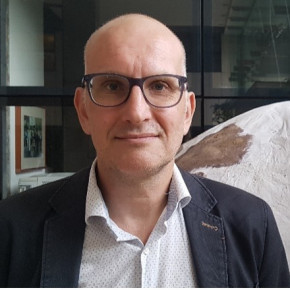
John Quinton
Dr. John Quinton is a Professor of Soil Science at Lancaster University. His research is focused on understanding soil processes and their interactions with the wider ecosystem, the sustainable management of soils and solutions to diffuse pollution.
He has published more than 120 journal papers including several recognised as highly cited and has a Wed of Science H-Index of 40. He is one of five Editors-in-chief of the EGU journal SOIL. Dr. Quinton is currently the PI for the NERC funded Signals in the Soil project focussing on soil health sensing.
In TUdi, Dr. Quinton is part of WP3. His other ongoing projects include a Marie Curie ITN on Microplastics, two Horizon 2020 projects and a GCRF project focused on controlling soil degradation, and EPSRC funded work on soils in construction.
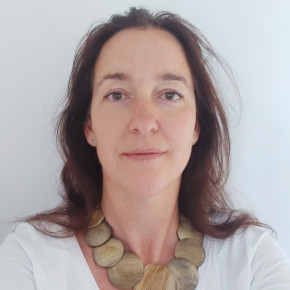
Csilla Hudek
Dr. Csilla Hudek holds a PhD in Physical geography. Her research focuses on plant-soil interactions, the role vegetation roots can play in recovering degraded ecosystems.
In her current role she is working towards developing new and advanced methodologies to transform and restore unsustainably managed soils in key agricultural systems.
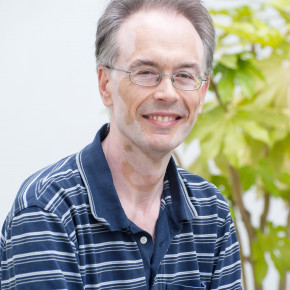
Ian Dodd
Dr. Ian Dodd is a Professor of Sustainable Agriculture at Lancaster University. His research aims to understand the mechanisms by which plants sense changes in the soil biological, chemical and physical environment.
Dr. Dodd further investigates how plants communicate information so as to regulate water use, growth and crop yield, and how this knowledge can be exploited to maximise agricultural profit while sustainably using resources. Dr. Dodd has been involved in many EU projects aiming to improve crop water use efficiency.
He has published more than 150 papers and has a Web of Science h index exceeding 50. He is Handling Editor of the Journal of Experimental Botany, and Plant and Soil.
Within TUdi, as part of WP3, he is interested in plant traits that can restore degraded soil, especially the development of the rhizosheath (soil binding to the root system).
UNIVERSITY OF TURIN
The Università degli Studi di Torino (UNITO) is one of the largest Italian Universities, with about 80.000 students, 3.900 employees (academic, administrative and technical staff), 1.800 post-graduate and post-doctoral research fellows. Research and training are performed in 27 Departments, encompassing all scientific disciplines.
According to ARWU international ranking, in 2018 UNITO ranks among the top 300 universities out of 1.200 and as the second university in Italy. The NTU Taiwan ranking for 2018 sets UNITO at the 171st place over the 500 top universities worldwide, and at the 6th place in Italy. UNITO is also 55th over 600+ worldwide and 2nd in Italy in the 2018 ranking by GreenMetrics, assessing the environmental and social sustainability of academic activities and infrastructures. With reference to the most recent national evaluation of the Italian university system (VQR 2011-2014), UNITO is ranked in the top three Italian universities in nine scientific areas out of 16.
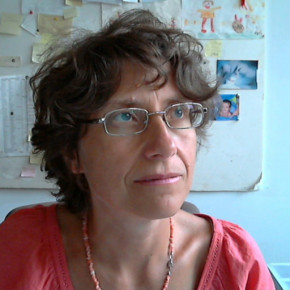
Laura Zavattaro
Dr. Laura Zavattaro holds a PhD in Forage Crops, with a background in agricultural sciences, soil sciences and hydrology. She is an agronomist with a research focus on the environmental impact of fodder crops, mainly as a consequence of fertilisation.
She has authored 47 indexed publications and 6 book chapters, plus several conference abstracts and technical papers.
In TUdi, Dr. Zavattaro is responsible for WP 2.2 focused on the development of an application to help farmers in deciding the correct amount of NPK to supply to crops.
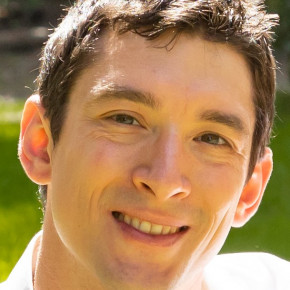
Marco Pittarello
Dr. Marco Pittarello is graduated in Forestry and Environmental Science with a PhD in Agricultural, Forest and Food Sciences. He currently works as a Research Associate at the University of Torino.
His main research focus is on the management and ecology of grasslands in lowland and mountain environments. In particular, his research involves the study and statistical modelling of the relationships between grassland management, forage and soil quality, and botanical composition, also in consideration of climatic and environmental factors.
IFAPA
The Andalusian Institute of Agricultural, Fisheries, Food and Organic Production Research and Training (IFAPA) is a public entity established by the Regional Government of Andalusia to respond to the evolving needs of the region’s agricultural, fisheries, aquaculture, and agri-food sectors.
As a strategic instrument for regional development, IFAPA is committed to promoting excellence in research, technological innovation, knowledge transfer, and capacity building. Its mission is to support sustainable growth and competitiveness across primary production systems and the food value chain, while contributing to broader European and international goals related to food security, environmental sustainability, and rural development.